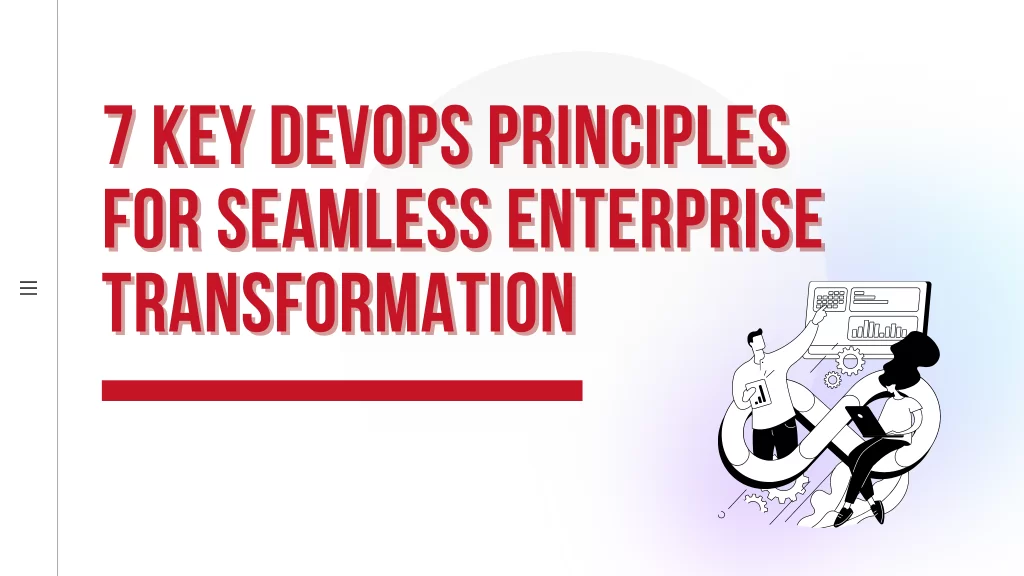
What is DevOps? Definition and Meaning
The main goal of DevOps is to seamlessly integrate people, processes, and tools to deliver high-quality software. It achieves this by bringing together the development (Dev) and operations (Ops) teams into a unified entity, streamlining the entire application lifecycle.
Through automation, continuous integration, and continuous development, DevOps optimizes every stage of the software development life cycle (SDLC). At its core, DevOps provides the necessary tools for producing error-free software with high quality.
If you’re considering implementing DevOps, it’s essential to understand what it entails. Having this knowledge will assist you in choosing the right DevOps consulting firm. Let’s dive into the details.
Benefits of Adopting DevOps
DevOps offers numerous advantages that address challenges faced by both internal and external stakeholders. These benefits fall into three main categories:
a) Faster Response to Market Demands
In today’s fast-paced digital world, businesses need to keep up with market demands to remain competitive. DevOps tools enable businesses to quickly meet customer expectations and improve consumer retention.
b) Faster Release of High-Quality Products
The DevOps CI/CD approach enables the rapid release of high-quality, error-free apps. Early problem detection during the development process is made possible through CI/CD, avoiding costly issues once the product has been released by the web development agency.
c) Improved Workplace
DevOps practices and principles enhance teamwork, collaboration, and communication throughout the software development life cycle (SDLC). Open communication leads to increased morale, fostering a positive and successful work environment.
7 Essential DevOps Principles for Business Transformation
To succeed with a DevOps mindset, it’s important to understand the key DevOps techniques and principles. Here are the key principles and practices of DevOps:
Collective Responsibility
One of the key DevOps philosophies is to cultivate a sense of shared responsibility among development and operations teams. This helps eliminate the division between the two teams and empowers the DevOps team to take ownership of all aspects of product development, including ensuring the quality of the final product.
Cross-functional Collaboration
Another core principle of DevOps is to foster collaboration across silos and encourage teams to work together. This enhances productivity, helps teams understand problems more effectively, speeds up response times, and improves the overall effectiveness of the product.
Customer-focused
The goal of DevOps best practices is to create an environment that is innovative, agile, and quick to respond to changing market demands. To achieve this, your mobile app development services must analyze processes, data, and market trends more efficiently than your competitors.
This involves assessing performance, identifying activities that can be automated, and building a culture that prioritizes meeting customer needs.
Continuous Improvement
One of the key philosophies in DevOps is the emphasis on constant improvement of processes and products. This becomes achievable when teams work together towards a common goal and continuously strive to improve. This also allows them to stay flexible and adaptable even in times of change.
Automation
A crucial aspect of DevOps is automation, which streamlines processes, reducing the time it takes for teams to respond to market demands and address issues. Automation using DevOps tools enables organizations to release products to customers more efficiently. The success of this approach depends on the DevOps team identifying processes that can be automated and executed quickly.
Communication and Collaboration
Effective communication and teamwork are central principles in DevOps. When development and operations teams work together, they can improve response times, produce robust products, and enhance customer service. As you adopt a DevOps mindset, you will see improved collaboration and communication among your staff.
Results-Driven Focus
The final and essential principle of DevOps is a focus on results. The goal is always at the forefront in a DevOps organization, and teams are aware of every step in the production process as well as the final outcome of the product. They can communicate effectively and work together while having the autonomy to create solutions that meet actual customer needs.
To maximize the benefits of DevOps, it’s important to follow best practices. These include:
Implementing a system-wide architecture to optimize configuration management and provide executives with visibility.
Adopting continuous deployment technologies for fast feature release.
Offering development support for users during the release process.
Implementing automatic monitoring to identify potential dangers and bugs.
Establishing integrated deployment best practices for both internal and external stakeholders.
Regularly testing code during every stage of the SDLC.
Incorporating workflows into code repositories and continuously updating them.
Encouraging stakeholder involvement and participation.
Implementing continuous delivery to streamline the build, test, and release process.
Conclusion :
Adopting a DevOps approach can be challenging for organizations. However, at Codepaper Technologies Inc., our DevOps experts have helped numerous top-tier firms and industry giants successfully implement DevOps models, as evidenced by their positive feedback.



